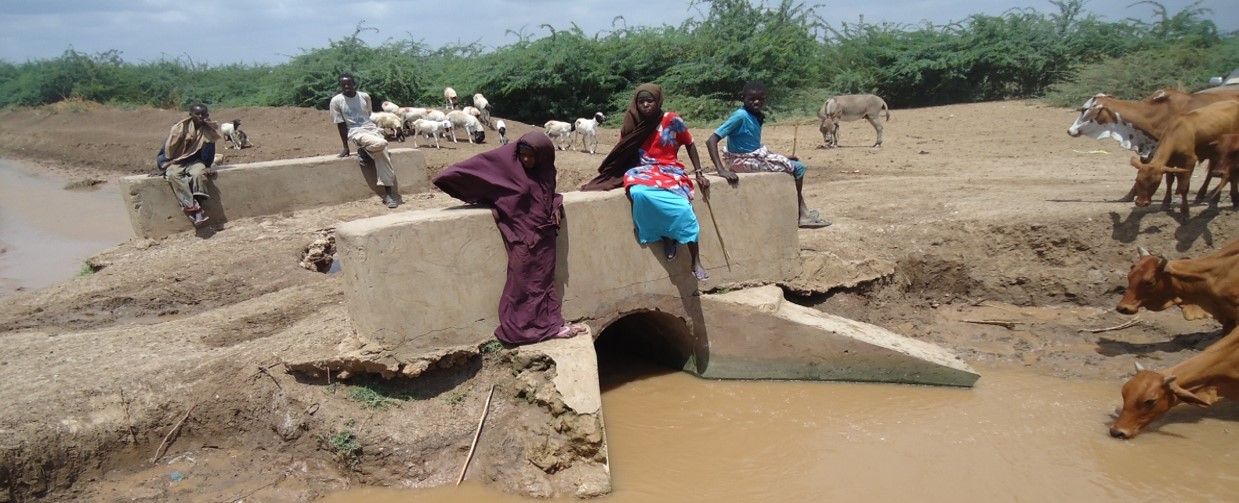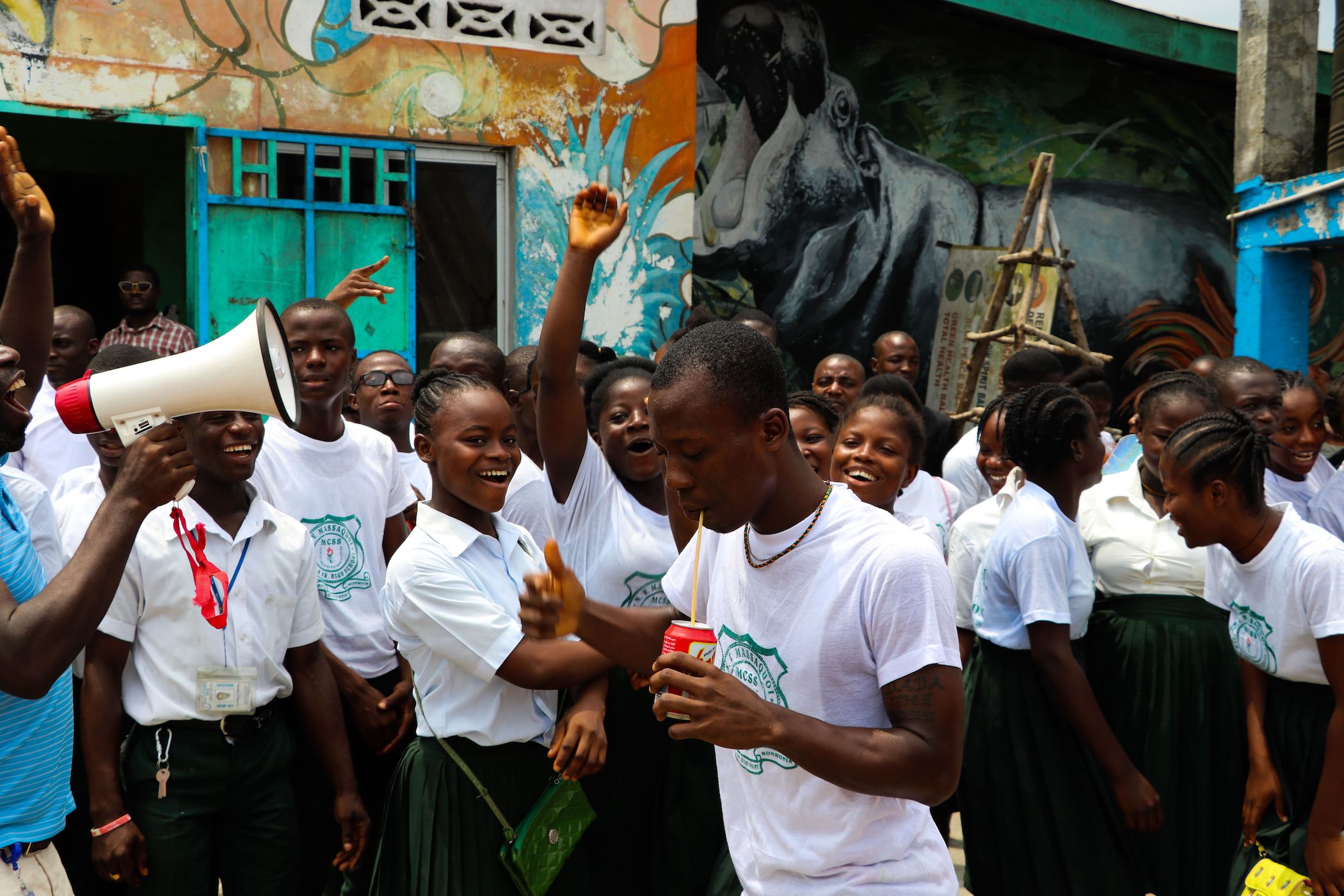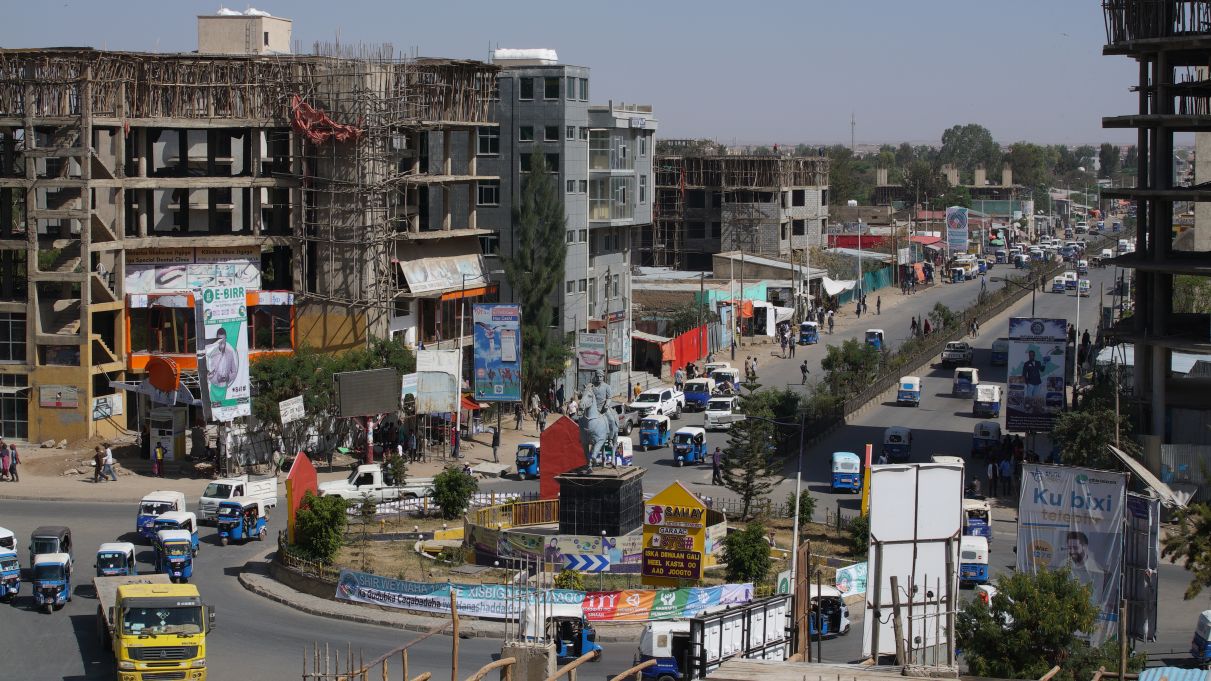Early warning systems are an increasingly important tool for helping vulnerable communities worldwide prepare for, monitor, and respond rapidly to climate-related natural disasters and risks such as flooding and famines. Through a grant provided by Cities Alliance, Action for Women and Children Concern (AWCC) aims to increase resilience to climate-induced shocks for 55,000 vulnerable people in the Marka district of the Lower Shabelle region of Somalia.
What is the problem?
Somalia is highly affected by climate-induced events, such as unpredictable droughts and flooding. In this war-torn country, such shocks hit hard for those with already low resilience, compounding problems of food insecurity and loss of assets and livelihoods. Today, half of the population needs humanitarian assistance.
Where is it?
Marka, Lower Shabelle region, Somalia
Who does it affect?
People already suffering from displacement and persistent poverty
What are the causes?
Climate change induced shocks are second only to protracted armed conflict as a major cause of internal displacement, food insecurity, and the livelihood crisis. Thousands migrate every year to urban areas to seek survival after they lose their productive assets to droughts and subsequent flooding from torrential rains. Two thirds of those affected by the crisis are women and children.
Approach
Action for Women and Children Concern (AWCC) considers inclusive community-based disaster risk management (CBDRM) as an effective way to both reduce the effects of and increase the overall community resilience to climate induced shocks. This project seeks sustainable solutions for Marka district in Somalia’s Lower Shabelle region that are cost effective and require active community participation.
In collaboration with local government and mobile phone service providers, AWCC will develop a unique SMS system tailored to local seasonal calendars to inform communities in advance to prepare for upcoming flooding.
AWCC recognizes the fact that women and children are primarily affected by climate-induced shocks, as they are the most vulnerable group. Nevertheless, women have huge potential to contribute to sustainable solutions through an inclusive CBDRM approach.
This project entails a series of trainings to introduce these inclusive methodologies, which will strengthen communities’ resilience capacities and enable them to better adapt to climate-induced shocks as communities.
This project was selected under the Innovation Programme Call for Proposals 2020 - Stronger Partnerships: Local Innovations for New Climate Realities in Cities - in collaboration with the Global Programme on Climate Change, Resilience and Informality




